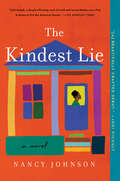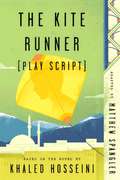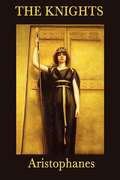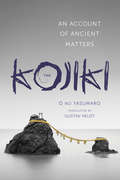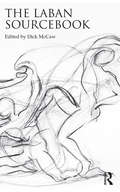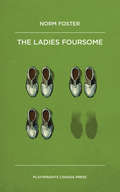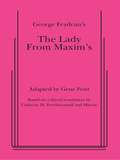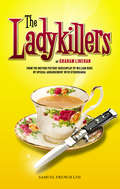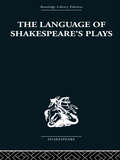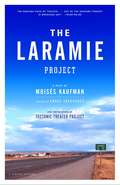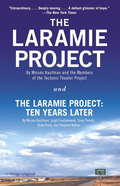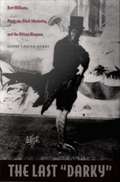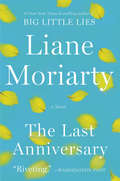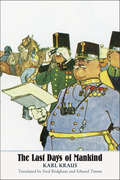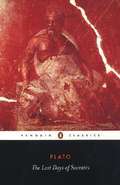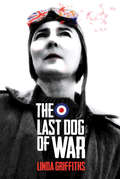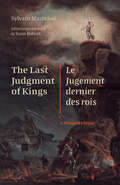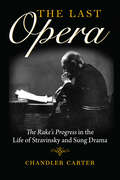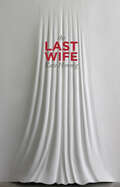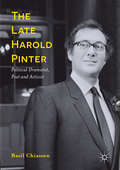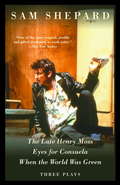- Table View
- List View
The Kindest Lie: A Novel
by Nancy JohnsonRecommended by O Magazine * GMA * Elle * Marie Claire * Good Housekeeping * NBC News * Shondaland * Chicago Tribune * Woman's Day * Refinery 29 * Bustle * The Millions * New York Post * Parade * Hello! Magazine * PopSugar * and more!“The Kindest Lie is a deep dive into how we define family, what it means to be a mother, and what it means to grow up Black...beautifully crafted.” —JODI PICOULT"A fantastic story...well-written, timely, and oh-so-memorable."—Good Morning America“The Kindest Lie is a layered, complex exploration of race and class." —The Washington PostEvery family has its secrets...It’s 2008, and the inauguration of President Barack Obama ushers in a new kind of hope. In Chicago, Ruth Tuttle, an Ivy-League educated Black engineer, is married to a kind and successful man. He’s eager to start a family, but Ruth is uncertain. She has never gotten over the baby she gave birth to—and was forced to leave behind—when she was a teenager. She had promised her family she’d never look back, but Ruth knows that to move forward, she must make peace with the past.Returning home, Ruth discovers the Indiana factory town of her youth is plagued by unemployment, racism, and despair. As she begins digging into the past, she unexpectedly befriends Midnight, a young white boy who is also adrift and looking for connection. Just as Ruth is about to uncover a burning secret her family desperately wants to keep hidden, a heart-stopping incident strains the town’s already searing racial tensions, sending Ruth and Midnight on a collision course that could upend both their lives.Powerful and unforgettable, The Kindest Lie is the story of an American family and reveals the secrets we keep and the promises we make to protect one another.
The Kindness of Strangers: The Life of Tennessee Williams
by Donald SpotoThis is a biography of America's greatest playright. Spoto tells of Williams's troubled childhood, his growing interest in writing, his output of plays with examples of critical notices, and his troubled private life. Williams was the living definition of prolific, where creative writing is concerned, though he was a victim of almost chronic depression.
The Kite Runner (Play Script): Based on the novel by Khaled Hosseini
by Matthew SpanglerThe script for the stage production of Khaled Hosseini's first and internationally bestselling novel, The Kite Runner, as adapted by playwright Matthew Spangler. The unforgettable, heartbreaking story of the unlikely friendship between a wealthy boy and the son of his father's servant, The Kite Runner is a beautifully crafted novel set in a country that is in the process of being destroyed. Now adapted for the stage, the story is about the power of reading, the price of betrayal, and the possibility of redemption, and is an exploration of the influence of fathers over sons--their love, their sacrifices, their lies.A sweeping saga of family, love, and friendship told against the devastating backdrop of the history of Afghanistan over the last thirty years, The Kite Runner is an unusual and powerful story that has become a beloved, one-of-a-kind classic.This adaptation was first performed at Wyndham's Theatre, London, in December 2016.
The Knights
by AristophanesIf the American Editor of this little volume (which is sent forth as a test of the character of American learning) deemed it either expedient or necessary to expatiate upon the merits of an author so celebrated and gifted as A ristophanes, he might extend his eulogia beyond the patient perusal of the moderns. The eloquent and erudite preliminary discourse by the accomplished translator, however, anticipates the remarks which otherwise would be expanded. No satirist, ancient or modern, ever enjoyed the deserved reputation of A ristophanes, and no one ever depicted, in colors so vivid and unfading, the essential and peculiar characteristics of democracy. As he lived under the dominion of the Universal People, he thoroughly understood the qualities of the democrats whom he has ridiculed and immortalized; and he never shrunk, when occasion demanded, from the exposure of flagrant abuses. Therefore, we commend, earnestly commend the perusal of this volume to our literary countrymen: and if the reception of this limited edition of a single comedy shall justify the editor in the more enlarged republication of all the works of A ristophanes, he will rejoice in the opportunity, thus afforded, of instructing and enlightening his countrymen.
The Kojiki
by Gustav HeldtChronicles the mythical origins of Japan's islands and their ruling dynasty through a diverse array of genealogies, tales, and songs
The Laban Sourcebook
by Dick McCawRudolf Laban (1879 – 1958) was a pioneer in dance and movement, who found an extraordinary range of application for his ideas; from industry to drama, education and therapy. Laban believed that you can understand about human beings by observing how they move, and devised two complimentary methods of notating the shape and quality of movements. The Laban Sourcebook offers a comprehensive account of Laban’s writings. It includes extracts from his five books in English and from his four works in German, written in the 1920s and translated here for the first time. This book draws on archival research in England and Germany to chart the development of Laban’s groundbreaking ideas through a variety of documents, including letters, articles, transcripts of interviews, and his unpublished Effort and Recovery. It covers: The beginning of his career in Germany and Switzerland in the 1910s. His astonishing rise to fame in Germany in the 1920s as a dance teacher, choreographer and creator of public dance events. Following his move to England in 1938, the application of his ideas to drama, education, industry, and therapy. Each extract has a short preface providing contextual background, and highlighting and explaining key terms. Passages have been selected and are introduced by many of the world’s leading Laban scholars.
The Ladies Foursome
by Norm FosterThe day after their friend Cathy’s funeral, Margot, Tate, and Connie gather for a round of golf in honour of their recently departed fourth. There, they are joined by another woman, an old friend of Cathy’s they’d never met. Over the course of eighteen holes, secrets and confessions unravel as the women discuss love, sex, children, and everything in between. A funny, fast-paced, heartwarming story of friendship inspired by The Foursome.
The Lady from Maxim's
by George FeydeauFarce / 5m, 4f, extras / Unit set A normally sober doctor awakens to find that he brought two things home from Maxim's last night: a hangover and a lady of the evening. His wife is diverted from discovering the tart by one of her famous visitations from a popular saint. The doctor's uncle returns after a long army tour in Africa and promptly mistakes the lady from Maxim's for his nephew's wife. Uncle's immediate business is marrying off a niece to a young soldier who turns out to be the true lover of the lady from Maxim's. Everybody is invited to the ceremony at the uncle's chateau where all courses collide. The master of bedroom farce unravels the confusion happily and innocently. The New York production featured witty original songs scored for piano which may be used at the producer's discretion. . "A well made funny bedroom farce." N.Y. Post
The Ladykillers
by William Rose Graham LinehanThe Ladykillers is a classic black comedy; a sweet little old lady, alone in her house, is pitted against a gang of criminal misfits who will stop at nothing. Posing as amateur musicians, Professor Marcus and his gang rent rooms in the lopsided house of sweet but strict Mrs Wilberforce. The villains plot to involve her, unwittingly, in Marcus' brilliantly conceived heist job. The police are left stumped but Mrs Wilberforce becomes wise to their ruse and Marcus concludes that there is only one way to keep the old lady quiet. With only her parrot, General Gordon, to help her, Mrs Wilberforce is alone with five desperate men. But who will be forced to face the music?
The Language of Shakespeare's Plays
by B. I. EvansFirst published in 1952. This volume explores the function of verse in drama and the developing way in which Shakespeare controlled the rhetorical and decorative elements of speech for the dramatic purpose. The Language of Shakespeare's Plays explores the plays chronologically and so covers all the outstanding problems of Shakespearian language in a way that makes reference easy, without any loss of a continuing narrative.
The Laramie Project
by Moises KaufmanOn October 7, 1998, a young gay man was discovered bound to a fence in the hills outside Laramie, Wyoming, savagely beaten and left to die in an act of hate that shocked the nation. Matthew Shepard's death became a national symbol of intolerance, but for the people of Laramie the event was deeply personal, and it's they we hear in this stunningly effective theater piece, a deeply complex portrait of a community.
The Laramie Project and The Laramie Project: Ten Years Later
by Moises Kaufman Andy Paris Tectonic Theater Project Greg Pierotti Leigh FondakowskiOn October 7, 1998, a young gay man was discovered bound to a fence outside Laramie, Wyoming, savagely beaten and left to die in an act of brutality and hate that shocked the nation. Matthew Shepard’s death became a national symbol of intolerance, but for the people of the town, the event was deeply personal. In the aftermath, Moisés Kaufman and members of the Tectonic Theater Project went to Laramie and conducted more than 200 interviews with its citizens. From the transcripts, the playwrights constructed an extraordinary chronicle of life in the town after the murder. Since its premiere, The Laramie Project has become a modern classic and one of the most-performed theater pieces in America. <P> Now, in this expanded edition, The Laramie Project: Ten Years Later adds an essential sequel to the original work. Revisiting the town a decade after the tragedy, the troupe finds a community grappling with its legacy and its place in history. The two plays together comprise an epic and deeply moving theatrical cycle that explores the life of an American town over the course a decade.
The Last "Darky": Bert Williams, Black-On-Black Minstrelsy, and the African Diaspora
by Louis Chude-SokeiThe Last "Darky" establishes Bert Williams, the comedian of the late nineteenth century and early twentieth, as central to the development of a global black modernism centered in Harlem's Renaissance. Before integrating Broadway in 1910 via a controversial stint with the Ziegfeld Follies, Williams was already an international icon. Yet his name has faded into near obscurity, his extraordinary accomplishments forgotten largely because he performed in blackface. Louis Chude-Sokei contends that Williams's blackface was not a display of internalized racism nor a submission to the expectations of the moment. It was an appropriation and exploration of the contradictory and potentially liberating power of racial stereotypes. Chude-Sokei makes the crucial argument that Williams's minstrelsy negotiated the place of black immigrants in the cultural hotbed of New York City and was replicated throughout the African diaspora, from the Caribbean to Africa itself. Williams was born in the Bahamas. When performing the "darky," he was actually masquerading as an African American. This black-on-black minstrelsy thus challenged emergent racial constructions equating "black" with African American and marginalizing the many diasporic blacks in New York. It also dramatized the practice of passing for African American common among non-American blacks in an African American-dominated Harlem. Exploring the thought of figures such as Booker T. Washington, W. E. B. Du Bois, Marcus Garvey, and Claude McKay, Chude-Sokei situates black-on-black minstrelsy at the center of burgeoning modernist discourses of assimilation, separatism, race militancy, carnival, and internationalism. While these discourses were engaged with the question of representing the "Negro" in the context of white racism, through black-on-black minstrelsy they were also deployed against the growing international influence of African American culture and politics in the twentieth century.
The Last Anniversary: A Novel
by Liane MoriartyFrom Liane Moriarty, author of the #1 New York Times bestsellers Big Little Lies and Truly Madly Guilty, comes an unforgettable novel defined by her signature sharp wit, page-turning storyline, and lovable and eccentric characters.Sophie Honeywell always wondered if Thomas Gordon was the one who got away. He was the perfect boyfriend, but on the day he was going to propose, she broke his heart. A year later he married his travel agent, while Sophie has been mortifyingly single ever since. Now Thomas is back in her life because Sophie has unexpectedly inherited his aunt Connie's house on Scribbly Gum Island—home of the famously unsolved Munro Baby mystery.Sophie moves onto the island and begins a new life as part of an unconventional family, where it seems everyone has a secret. Grace, a beautiful young mother, is feverishly planning a shocking escape from her perfect life. Margie, a frumpy housewife, has made a pact with a stranger, while dreamy Aunt Rose wonders if maybe it's about time she started making her own decisions.As Sophie's life becomes increasingly complicated, she discovers that sometimes you have to stop waiting around—and come up with your own fairy-tale ending.
The Last Days of Mankind
by Karl Kraus Edward Timms Fred BridghamOne hundred years after Austrian satirist Karl Kraus began writing his dramatic masterpiece, "The Last Days of Mankind "remains as powerfully relevant as the day it was first published. Kraus's play enacts the tragic trajectory of the First World War, when mankind raced toward self-destruction by methods of modern warfare while extolling the glory and ignoring the horror of an allegedly "defensive" war. This volume is the first to present a complete English translation of Kraus's towering work, filling a major gap in the availability of Viennese literature from the era of the War to End All Wars. Bertolt Brecht hailed "The Last Days" as the masterpiece of Viennese modernism. In the apocalyptic drama Kraus constructs a textual collage, blending actual quotations from the Austrian army's call to arms, people's responses, political speeches, newspaper editorials, and a range of other sources. Seasoning the drama with comic invention and satirical verse, Kraus reveals how bungled diplomacy, greedy profiteers, Big Business complicity, gullible newsreaders, and, above all, the sloganizing of the press brought down the Austro-Hungarian Empire. In the dramatization of sensationalized news reports, inurement to atrocities, and openness to war as remedy, today's readers will hear the echo of the fateful voices Kraus recorded as his homeland descended into self-destruction.
The Last Days of Socrates: Euthyphro - The Apology - Crito - Phaedo
by Hugh Tredennick Harold Tarrant PlatóThe trial and condemnation of Socrates on charges of heresy and corrupting young minds is a defining moment in the history of Classical Athens. In tracing these events through four dialogues, Plato also developed his own philosophy, based on Socrates' manifesto for a life guided by self-responsibility. Euthyphrofinds Socrates outside the courthouse, debating the nature of piety, while The Apologyis his robust rebuttal of the charges of impiety and a defence of the philosopher's life. In the Crito, while awaiting execution in prison, Socrates counters the arguments of friends urging him to escape. Finally, in the Phaedo, he is shown calmly confident in the face of death, skilfully arguing the case for the immortality of the soul. Hugh Tredennick's landmark 1954 translation has been revised by Harold Tarrant, reflecting changes in Platonic studies, with an introduction and expanded introductions to each of the four dialogues.
The Last Dog of War
by Linda GriffithsIn 2005 Linda made a trip with her father to the last reunion of his RAF comrades, the 49th Squadron, Bomber Command. Intertwining her father’s experiences of a long-ago war with the war between a father and daughter, Linda Griffiths unveils an emotional chronicle of a family navigating a familiar yet foreign relationship.
The Last Judgment of Kings / Le Jugement dernier des rois: A Bilingual Edition (Scènes francophones: Studies in French and Francophone Theater)
by Sylvain Maréchal (1750-1803)First performed the day after Marie-Antoinette’s beheading, Le Jugement dernier des rois stages the burlesque trial of the remaining kings and queens of Europe—paraded in chains like animals, made to brawl over a barrel of crackers, and finally obliterated by a spectacular volcanic eruption. Such is the shocking context—at once tragic and farcical—of the most infamous play of the French Revolution, familiar to all specialists of the period. Until now, however, no standalone critical edition or English translation of this historic play existed. This bilingual edition revives Maréchal’s play and reveals its centrality to scholarly debates about Revolutionary notions of justice, religion, commemoration, comedy, and propaganda. Provocative, written in accessible prose, and short—perfect for students in a French or history seminar—Le Jugement dernier des rois offers an ideal introduction to the most important and contentious questions of the Revolutionary period. Joué pour la première fois le lendemain de l’exécution de Marie-Antoinette, Le Jugement dernier des rois met en scène le procès burlesque des autres rois et reines d’Europe : exhibés et enchaînés tels des animaux, contraints de se battre pour un tonneau de biscuits, et finalement anéantis par l’éruption spectaculaire d’un volcan. Tel est le contexte scandaleux—tragédie et farce à la fois—de la pièce la plus célèbre de la Révolution française, bien connue de tous les spécialistes de cette période. Jusqu’à maintenant, pourtant, il n’existait ni édition critique ni traduction anglaise de cet ouvrage historique. Notre édition bilingue fait revivre la pièce de Maréchal et la replace au centre des plus grands débats chez les historiens de la Révolution, traitant de justice, religion, commémoration, comédie, et propagande. Provocateur, facile à lire, et concis—parfaitement adapté aux étudiants d’un cours de français ou d’histoire—Le Jugement dernier des rois propose ainsi une introduction idéale à la période révolutionnaire et à ses principales controverses. Published by Bucknell University Press. Distributed worldwide by Rutgers University Press.
The Last Opera: <I>The Rake’s Progress</I> in the Life of Stravinsky and Sung Drama (Russian Music Studies)
by Chandler CarterFrom the fall of 1947 through the summer of 1951 composer Igor Stravinsky and poet W. H. Auden collaborated on the opera The Rake’s Progress. At the time, their self-consciously conventional work seemed to appeal only to conservative audiences. Few perceived that Stravinsky and Auden were confronting the central crisis of the Modern age, for their story of a hapless eighteenth-century Everyman dramatizes the very limits of human will, a theme Auden insists underlies all opera. In The Last Opera, Chandler Carter weaves together three interlocking stories. The central and most detailed story explores the libretto and music of The Rake’s Progress. The second positions the opera as a focal point in Stravinsky's artistic journey and those who helped him realize it—his librettists, Auden and Chester Kallman; his protégé Robert Craft; and his compatriot, fellow composer, and close friend Nicolas Nabokov. By exploring the ominous cultural landscape in which these fascinating individuals lived and worked, the book captures a pivotal twenty-five-year span (from approximately 1945 to 1970) during which modernists like Stravinsky and Auden confronted a tectonic disruption to their artistic worldview. Ultimately, Carter reveals how these stories fit into a larger third narrative, the 400-year history of opera. This richly and lovingly contextualized study of The Rake’s Progress sheds new light on why, despite the hundreds of musical dramas and theater pieces that have been written since its premier in 1951, this work is still considered the "the last opera."
The Last Wife
by Kate HennigKate Parr is smart, confident, and passionate: a rising star in a world of intense competition. But her obligatory marriage to Henry is rife with the threat of violence and the lure of deceit; her secret liaisons with Thom, her husband’s former brother-in-law, could send her to an early grave; and her devotion to the education and equal rights of Henry’s daughters is putting an even bigger strain on her marriage. Does Kate risk her life to gain authority in both her relationship and her political career? Which love will she be led to if she follows her heart? And what kind of future is there for her children if she makes a crucial mistake?
The Late Harold Pinter
by Basil ChiassonThis volume is the first to provide a book-length study of Pinter's overtly political activity. With chapters on political drama, poetry, and speeches, it charts a consistent tension between aesthetics and politics through Pinter's later career and defines the politics of the work in terms of a pronounced sensory dimension and capacity to affect audiences. The book brings to light unpublished letters and drafts from the Pinter Archive in the British Library and draws his political poems and speeches, which have previously been overshadowed by his plays, into the foreground. Intended for students, instructors, and researchers in drama and theatre, performance studies, literature, and media studies, this book celebrates Pinter's later life and work by discerning a coherent political voice and project and by registering the complex ways that project troubles the divide between aesthetics and politics.
The Late Henry Moss, Eyes for Consuela, When the World Was Green: Three Plays
by Sam ShepardThese three plays by Pulitzer Prize winner Sam Shepard are bold, explosive, and ultimately redemptive dramas propelled by family secrets and illuminated by a searching intelligence. In The Late Henry Moss--which premiered in San Francisco, starring Sean Penn and Nick Nolte--two estranged brothers confront the past as they piece together the drunken fishing expedition that preceded their father's death. In Eyes for Consuela, based on Octavio Paz's classic story "The Blue Bouquet," a vacationing American encounters a knife-toting Mexican bandit on a gruesome quest. And in When the World Was Green, cowritten with Joseph Chaikin, a journalist in search of her father interviews an old man who resolved a generations-old vendetta by murdering the wrong man. Together, these plays form a powerful trio from an enduring force in American theater.
